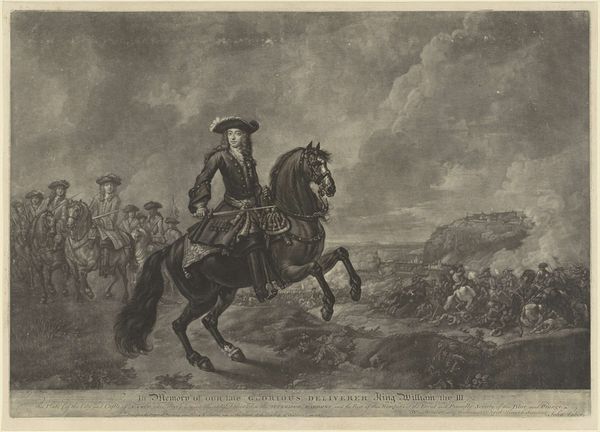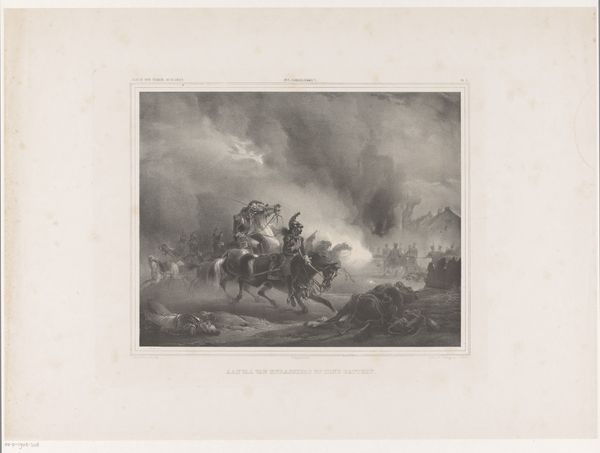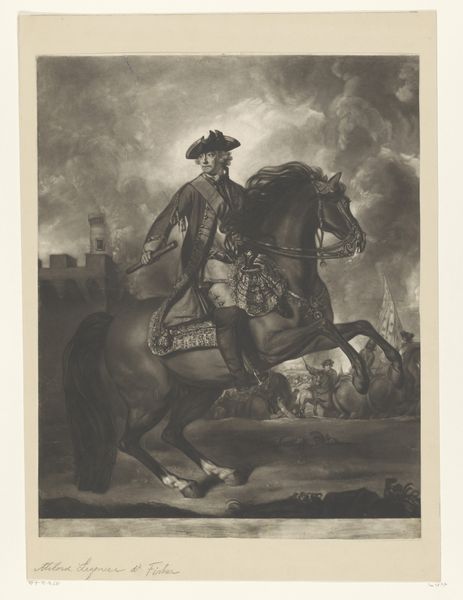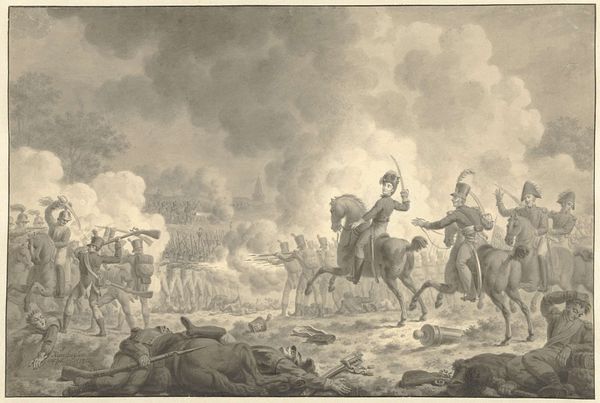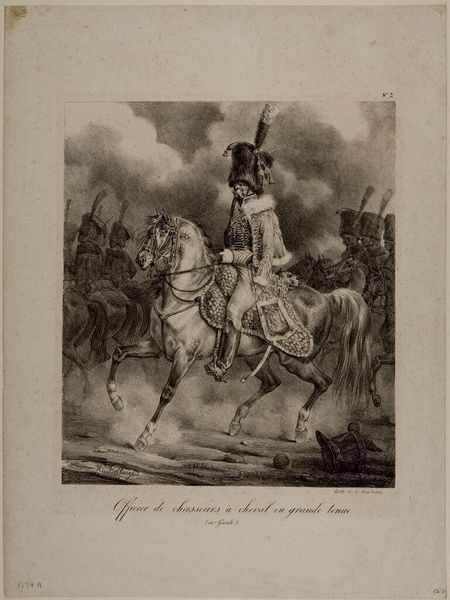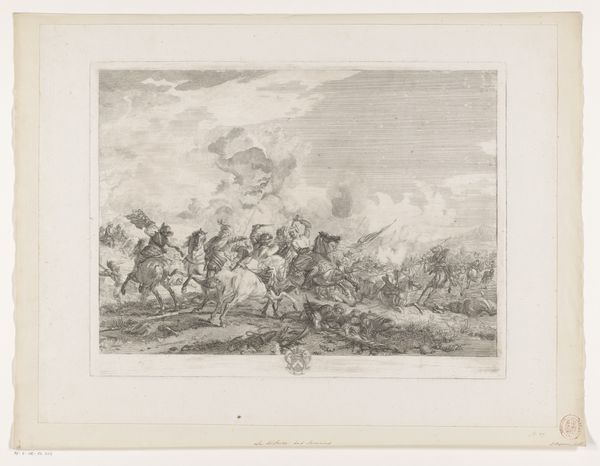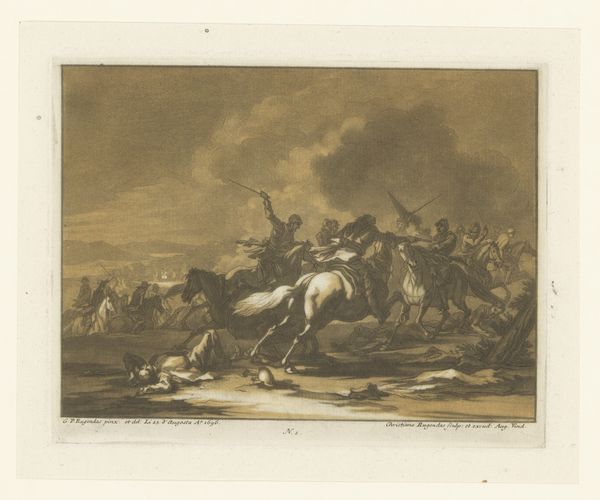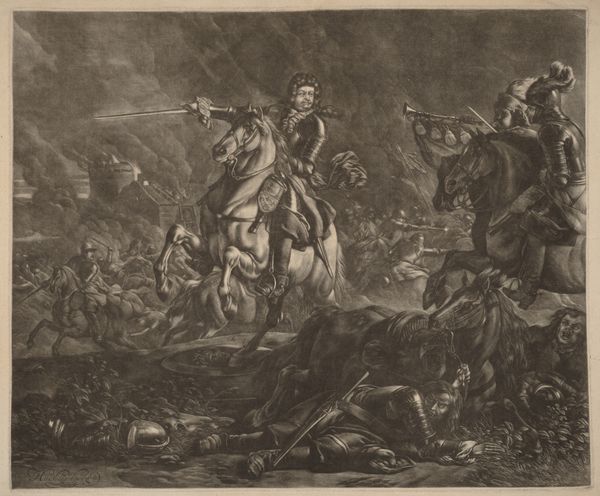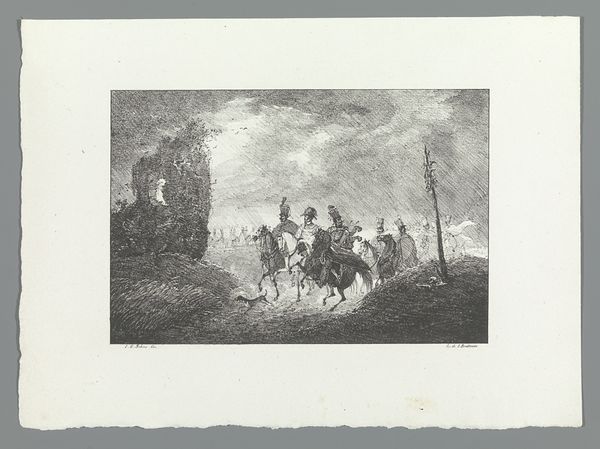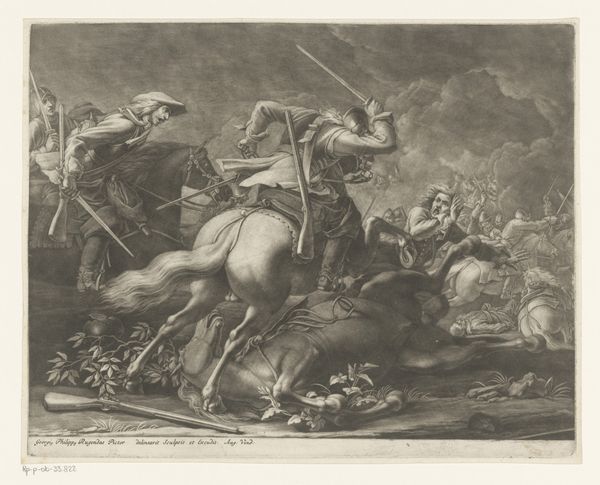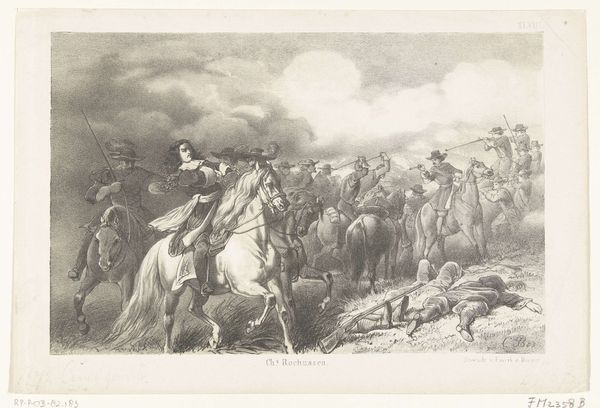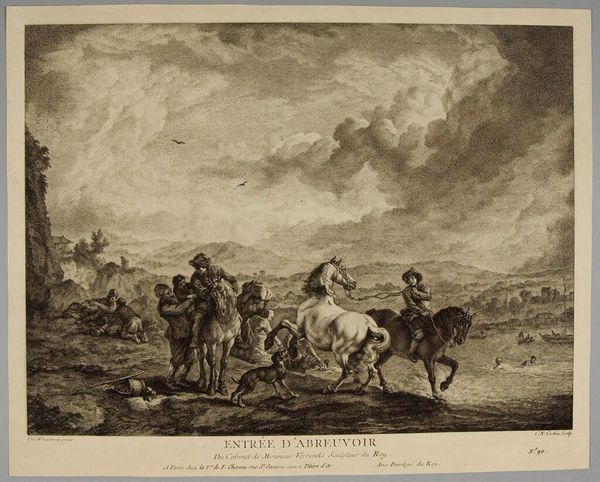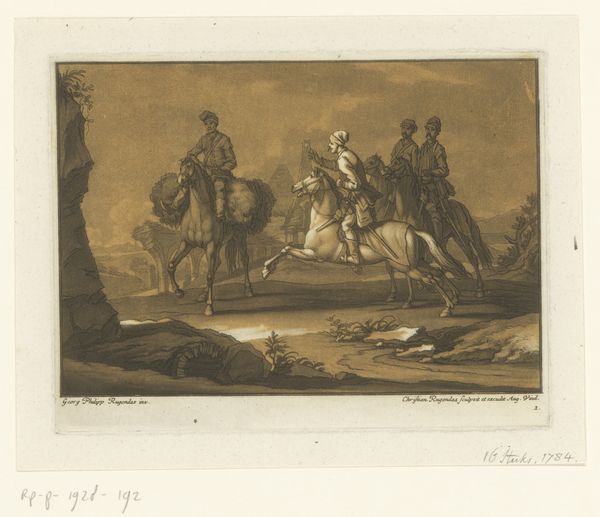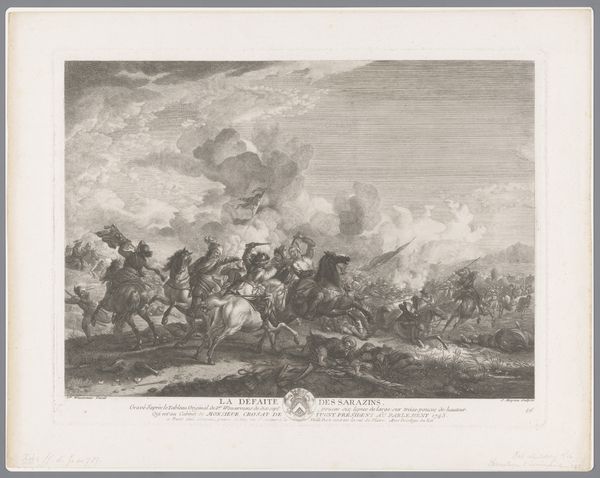
Dimensions: 513 × 606 mm (image); 543 × 606 mm (plate); 575 × 692 mm (sheet)
Copyright: Public Domain
John Dixon's "William John, Earl of Ancrum," presents us with a dramatic scene, dominated by the figure of the Earl on horseback, pointing towards a fire in the background. This gesture of command and direction is one that echoes through art history. Think of Roman generals depicted in similar poses, their outstretched arms signifying power and control. In this engraving, the Earl's gesture takes on a more urgent tone against the backdrop of conflict. The fire itself is a potent symbol, isn’t it? Historically, it represents destruction, purification, but also transformation. We see it in countless depictions of hell, purgatory, or even the burning bush of Moses. The collective memory of such potent symbols taps into our subconscious, evoking feelings of fear, awe, and perhaps even a strange fascination. The Earl's pointing gesture against the fiery backdrop stirs deep-seated emotions. It is a non-linear symbol, resurfacing, evolving, and taking on new meanings in different historical contexts.
Comments
No comments
Be the first to comment and join the conversation on the ultimate creative platform.
